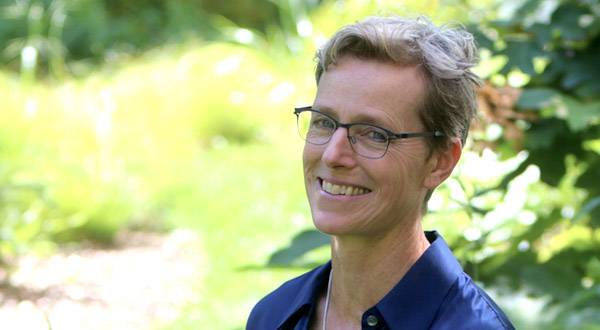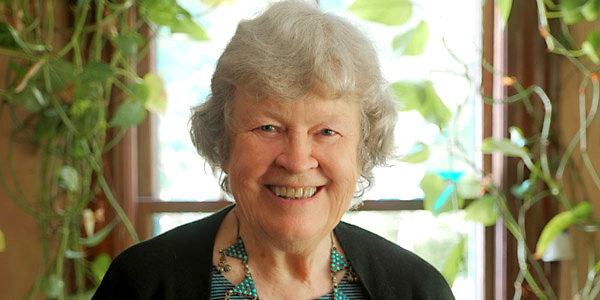MIT SCHOOL OF HUMANITIES, ARTS, AND SOCIAL SCIENCES
Media + Awards Digest | February 2020

The Media + Awards Digest is a section of the Said and Done newsletter. Subscribe
Office of the Dean | 18 February 2020
Dear Friends,
Hello from MIT’s School of Humanities, Arts, and Social Sciences! As the Spring term gets underway our School’s contribution to public discourse continues apace.
It’s particularly gratifying to see our new generation of scholars represented in this edition. Political Science doctoral candidate Mina Pollmann writes about Japan’s immigration debate in The Diplomat, and Security Studies Program doctoral candidate Marsin Alshamary provides insight on the current Iraqi protest movement for PRI/The World. Further PoliSci highlights involve extensive election commentary and analysis from Professor Charles Stewart, head of the MIT Election Lab.
Other wide-ranging contributions include Professor of Anthropology Heather Paxson in The Smithsonian on the impact of tariffs and the meaning of terroir for food; T.L. Taylor, Professor of Comparative Media Studies in The Washington Post on the rise and economics of eSports; and STS Professor Sherry Turkle speaking with the BBC on why we choose to text instead of talk.
Warm wishes, Spring days grow nigh!
Melissa Nobles
Kenan Sahin Dean
MIT School of Humanities, Arts, and Social Sciences
MEDIA DIGEST
CREATURES

Photo: House sparrow, © Joyce Love, Audubon Photography Awards
SALON
Victorian efforts to export animals to new worlds failed, mostly | Harriet Ritvo
"The house sparrow, camel, skylark, nightingale, and various deer species were among the animals that acclimatizers introduced. As an environmental historian, I am exploring both the successes and the failures of this movement as part of a larger historical study of animals that occupy the gray area between wildness and domestication."
Article at Salon | Ritvo Whiting Award webpage
THE NEW YORK TIMES
The world's fireflies have a courtship problem | Shola Lawal
The bright lights of modernity now outshine the creatures' luminous signals to one another. Lawal is a journalist and a Research Fellow in the MIT Center for International Studies.
Commentary at The New York Times

Fireflies on Shikoku, Japan. Photo by Kei Nomiyama, Bancroft Media, via Getty Images
"Insects like fireflies tend to be critical to their ecosystems. Their disappearance could create havoc with food webs, especially for the birds and other animals that feed on them ... The implications are also intangible: Just about everybody loves fireflies."
ANTHROPOLOGY + SCIENCE, TECHNOLOGY, AND SOCIETY

Kate Brown; photo by Allegra Boverman
THE CHRONICLE OF HIGHER EDUCATION
Scholars talk writing | Kate Brown
A professor of Science, Technology, and Society, Brown teaches environmental history, Cold War history, and creative-nonfiction history writing, and has written about population politics, linguistic mapping, and the consequences of living with nuclear fallout. Her most recent book, Manual for Survival: A Chernobyl Guide to the Future, is a finalist for the 2019 National Book Critics Circle Awards in Nonfiction.
Listen at The Chronicle of Higher Education
FORBES
Are we due for another human spaceflight accident? | David Mindell
In a few months we will mark the fiftieth anniversary of Apollo 13, NASA’s successful failure. Despite mechanical catastrophe, the team brought three astronauts home safely from the moon. We should recognize Apollo 13 with equal fervor and attention as Apollo 11, for failure may be more instructive for NASA’s future than success. Not that its future endeavors are bound to fail, but failure is certainly possible if the agency repeats past mistakes.
Commentary at Forbes

Photo: BBC
BBC
Why do we text instead of talk? | Sherry Turkle
We can now curate who we talk to in a way that wasn’t thinkable when a bulky landline phone sat in a corner of a house and rang with anonymous urgency. Turkle discusses why we choose to text instead of talk, and if texting is changing the way we interact and relate with each other.
Commentary at BBC
SMITHSONIAN MAGAZINE
Is paying a premium for European foods worth it? | Heather Paxson
MIT anthropologist Paxson says that place, which "is something that's captured in the French notion of terroir doesn't just refer to physical environmental conditions, but also to the tradition of cultural know-how and ways in which they intertwine to produce 'products of distinction.'" Such foods "are valued not just because they taste different, and possibly better, but also because they connect with a local identity.”
Commentary at Smithsonian Magazine
POLITICAL SCIENCE | MIT ELECTION LAB | CHARLES STEWART III

Photo: Marketplace Tech
MARKETPLACE TECH
Iowa caucus verdict: Sometimes, there shouldn’t be an app for that.
MIT political scientist and election expert Charles Stewart comments: "The best use of technology in elections is to do the things that human beings are bad at doing. Human beings are very bad at doing tedious things, and the most tedious of those things in elections is counting the ballots."
Conversation at Marketplace Tech
WIRED
The saving grace of the Iowa caucus debacle
"Flippant as it may sound, it's good that the fiasco happened in a small state and at the beginning of the nomination season," says MIT Professor Charles Stewart III. "Candidates and the public need some time to ramp up their efforts; doing so in small states minimizes some of the consequences of mistakes that inevitably happen."
Editorial at Wired
ASSOCIATED PRESS
Online conspiracy theories flourish after Iowa caucus
These type of cases show it's important for the presidential candidates to foster trust in the system among their supporters, said Charles Stewart III. “I really hope that the candidates will recognize that if they don't defend the system when it can be defended that they are doing harm to democracy and [devaluing] the nomination they're seeking.”
Story by the AP
GLOBAL LANGUAGES + COMPARATIVE MEDIA STUDIES

Photo: iStock
LOS ANGELES TIMES
The question is "like asking why people wear hats in the US,” said Emma Teng, MIT Professor of Asian Civilizations. Across the Pacific, she explains, masks are worn for everything from disease control, to courtesy, to pollution and protests.
Story at The Los Angeles Times
THE WASHINGTON POST
The 2010s were a banner decade; esports reaped the rewards | T.L. Taylor
"Current intellectual property frameworks around gaming upend issues of access and participation despite the fact that esports is only possible via a wide swath of stakeholders,” says Taylor.
Story at the Washington Post
THE NEW YORK TIMES
Time is still a mystery to Einstein’s Dreams author, Alan Lightman
MIT physicist/writer Alan Lightman "was a boy who could launch a rocket with a tadpole in it and bring it back alive to the ground (although without its tail) and also win the state National Council of Teachers of English literary award."
Profile at The New York Times
ECONOMICS | POVERTY ALLEVIATION

lllustration: Till Lauer for The New Yorker. The degrowth movement would overhaul social values and production patterns.
NEW YORKER
Is there prosperity without growth? | Abhijit Banerjee, Esther Duflo
Even within mainstream economics, the growth orthodoxy is being challenged. In Good Economics for Hard Times, Banerjee and Duflo (2019 Nobel laureates) point out that a larger GDP doesn’t necessarily mean a rise in human well-being—especially if it isn’t distributed equitably—and the pursuit of it can sometimes be counterproductive.
Article at The New Yorker
TIMES HIGHER EDUCATION
Nobelists offer master’s degree | Abhijit Banerjee, Esther Duflo
Two Nobel prizewinners are helping to create a master’s degree programme to which students – even those without an undergraduate qualification – gain admission solely by their online course performance.
Story at Times Higher Education
THE WIRE
Healthcare is gender blind. Here’s how to fix it | Shagun Sabarwal
"By not accounting for crucial factors around the realities of women and girls ... the potential impact of India’s public programmes may often be minimised."
Story at The Wire
ECONOMICS | FAMILY LEAVE + WORK OF THE FUTURE
WGBH
On the economics of paid parental leave | Jonathan Gruber
Gruber, the Ford Professor of Economics, joined Boston Public Radio to break down the pros and cons of the policy. The U.S. lags behind other nations even for job protections with family leave. "Guaranteed job protected leave didn't exist before Bill Clinton put in the Family Medical Leave Act," Gruber said.
Listen at WGBH
FORBES
What politicians don't understand about the AI debate | David Autor
Broader examinations of the impact of technology support the vision of a comfortable transition to AI rather than a jarring dystopia. A report from MIT says that despite the fear that automation kills jobs, industrialized countries will have more job openings than workers to fill them.
Story at Forbes
POLITICAL SCIENCE | INTERNATIONAL AND SECURITY STUDIES

University students during anti-government protests in Baghdad; Photo: Thaier al-Sudani/Reuters
THE WORLD/PRI
Iraqi protesters will likely push forward despite violence | Marsin Alshamary
Since last October, Iraqis have staged peaceful anti-government protests throughout Baghdad and the southern provinces. These mass protest movements have drawn attention for their unifying nationalistic rhetoric, their irreverence for traditional societal and political figures, and for their strict adherence to peaceful means in the face of increasing brutality by the government’s forces and paramilitary groups.
Commentary at PRI/The World
THE DIPLOMAT
Is Japan ready to welcome immigrants? | Mina Pollmann
"There seem to be at least two separate concerns driving those who are less favorable toward granting foreigners permanent resident states: one is couched in terms of law and order concerns, and the other in terms of the state’s fiscal sustainability. It is impossible to disentangle which concern is more salient given the way the questions were structured to allow individuals to give multiple responses."
Commentary at The Diplomat
HONORS AND AWARDS

Barbara Partee PhD '65; photo via the Franklin Institute
LINGUISTICS
Barbara Hall Partee PhD '65 wins the Franklin medal
Partee, one of MIT's most distinguished alumna, and Professor emerita at UMass Amherst, has been named a winner of the 2020 Franklin medal awarded by the Franklin Institute. Partee was a member of the first PhD class at MIT Linguistics and is a founder of the field of formal semantics. In the citation accompanying the award, Partee is hailed for “her foundational contributions that synthesize insights from linguistics, philosophy, logic, and psychology to understand how words and sentences combine to express meaning in human language....Partee’s contributions to understanding language...have been key shaping concepts in computer science and cognitive science."
Franklin Prize announcement | Partee Wikipedia page
The Media + Awards Digest is a section
of Said and Done, the School's online newsletter.
EXPLORE
Follow us




Subscribe to Said and Done
10 issues a year
Research
Impact
Ethics, Computing, and AI: Perspectives from MIT
Browse the Series
Computing and AI: Humanistic Perspectives from MIT
Browse the Series
MIT Climate website | Humanistic research
A major source of research, innovation, and discussion
Join us!
SHASS on MIT News
Research and Features
MIT Campaign for a Better World
Story| Join Us

Published by SHASS Communications
Office of the Dean, MIT School of Humanities, Arts, and Social Sciences
Editor and Designer: Emily Hiestand
Publication Associate: Alison Lanier
Media Relations Manager: Stephen Oakes
Published 19 February 2020